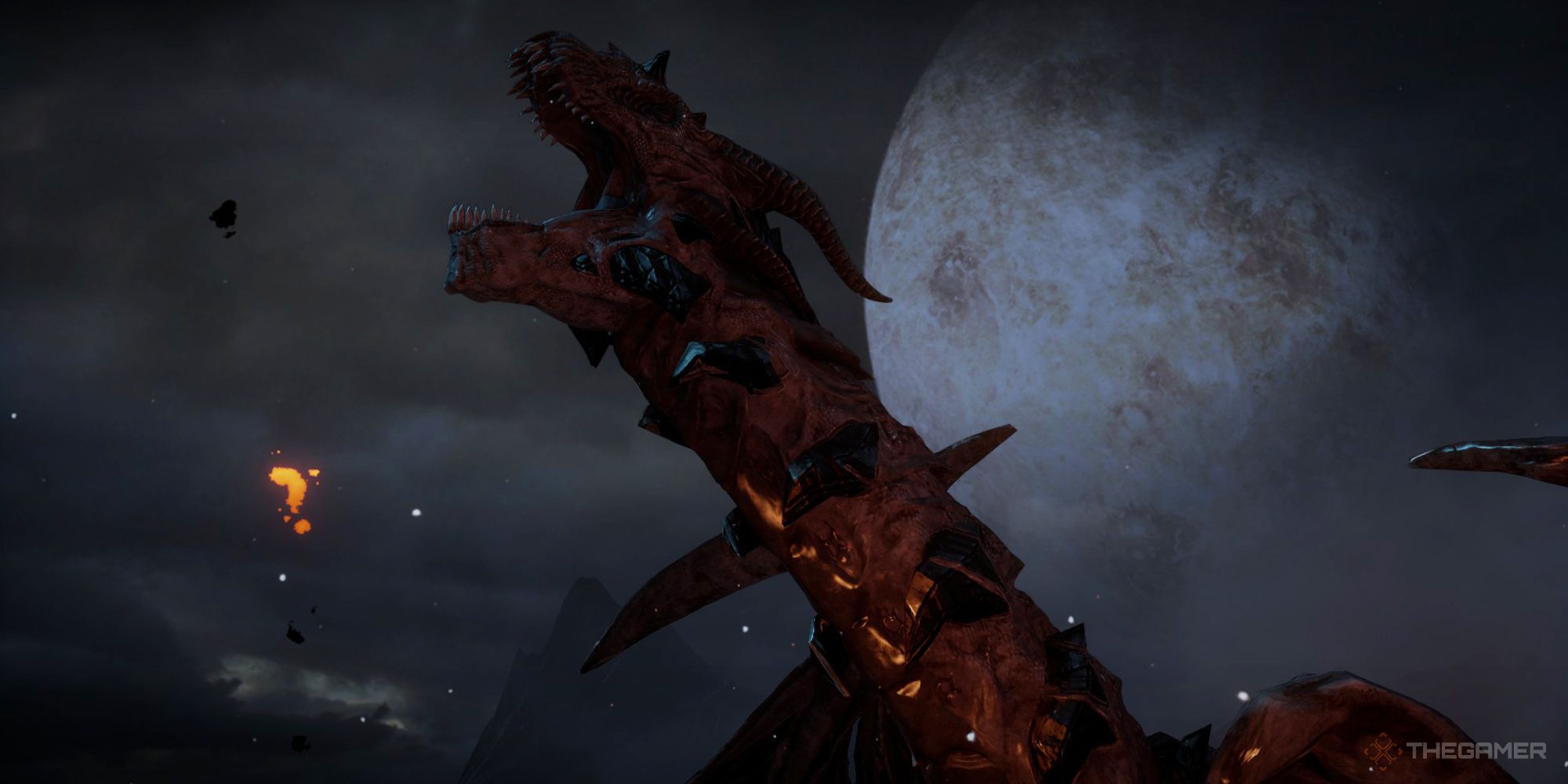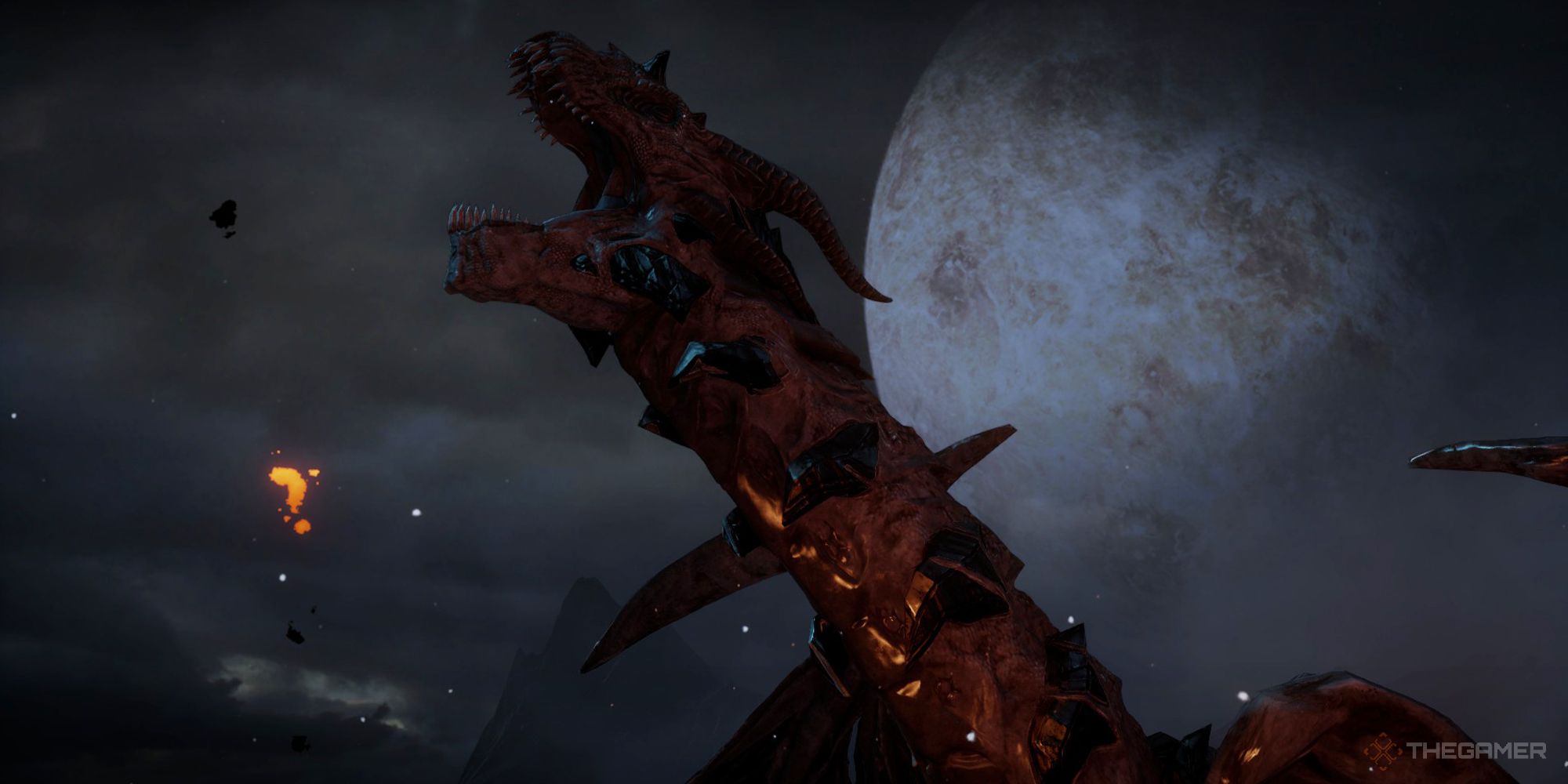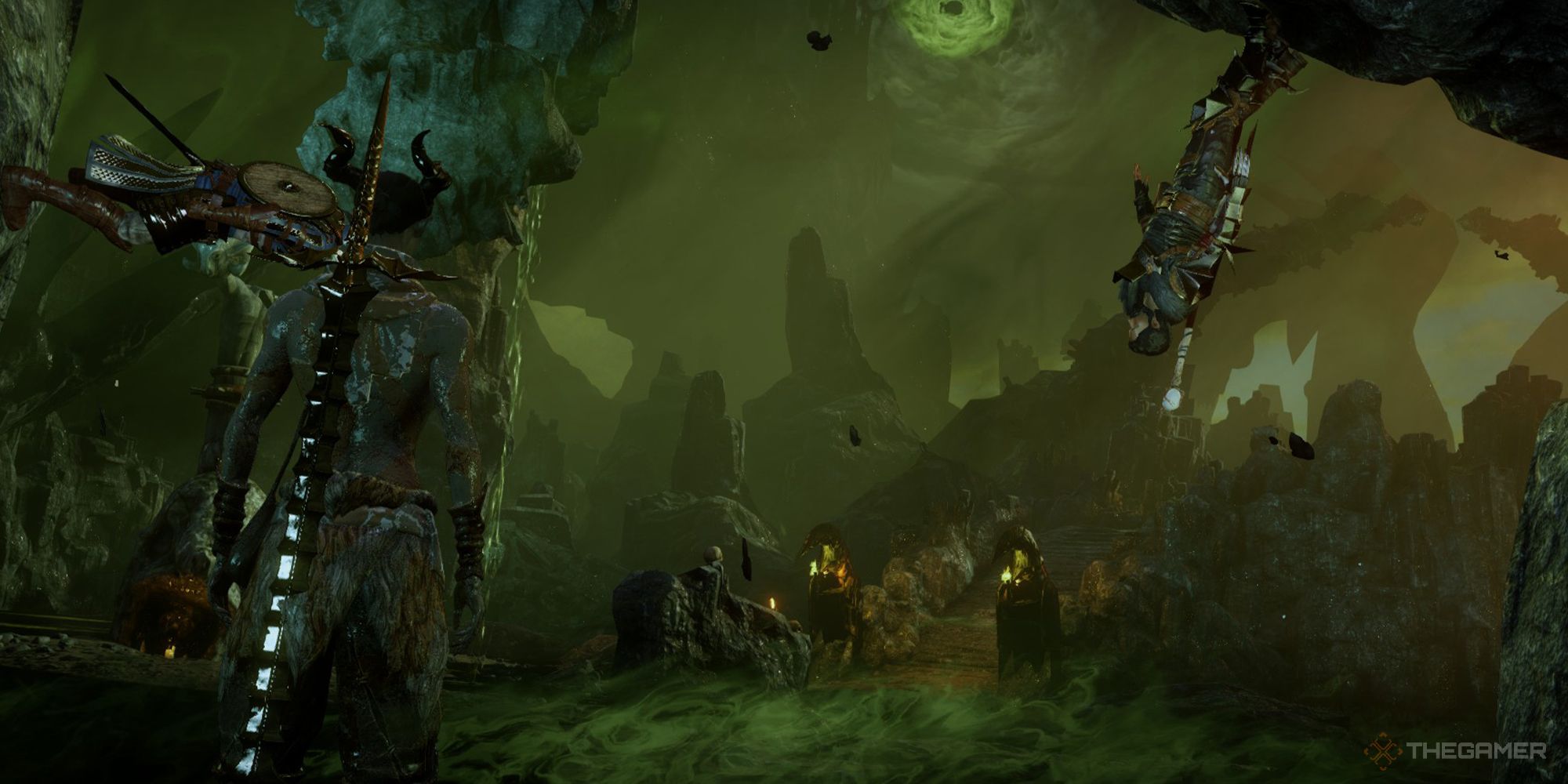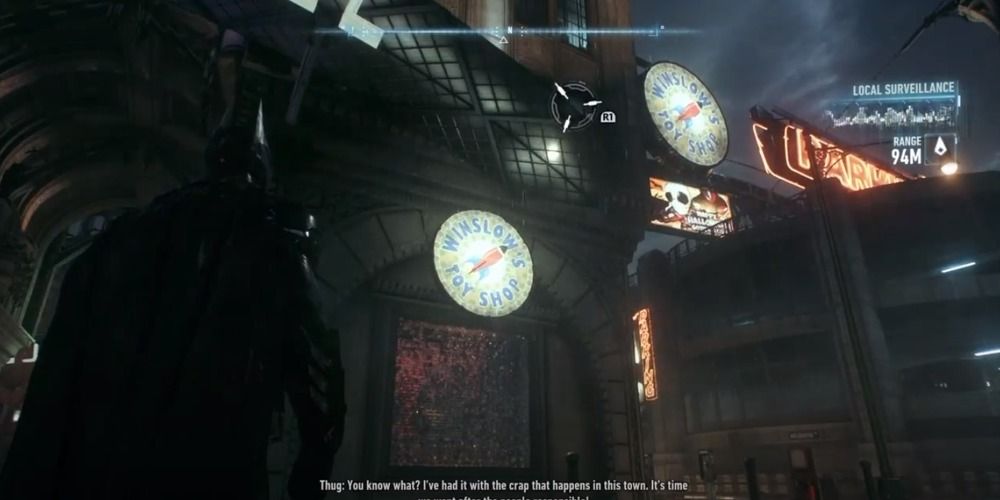
I love Dragon Age: Inquisition and it’s not just because of Freddie Prinze Jr.. Or because you can play as a Qunari. Or the fact you can throw a jar of bees at your foes. That’s a big part of it, granted – I love being an ashy skinned, devilishly handsome horned heroine – but what really sets apart Inquisition is that it lives up to the initial promise that Origins made.
Inquisition is a sprawling high fantasy world in decline that’s perfect for excursion after excursion. Exploration was an integral part of Origins, but its era limited the scope. Rather than vast land masses that lend themselves to side quests and hidden riches, Origins was made up of a series of smaller, more enclosed levels you could travel between. It gave the illusion of an open-world game that Inquisition would later go on to fully realize.
RELATED: The Oral History Of Dragon Age: Origins
Whether it’s the desolate sand dunes of the Western Approach, adorned by wartime trenches falling apart to the elements, or the luscious verdant forest of the Hinterlands accompanied by the familiar Redcliffe, Inquisition is a diverse palette rich with exciting locales to venture into. It gives a sense of scale to the world of Dragon Age, putting it all into perspective, but it also shows the aftermath of the prior two games perfectly. We can see how the Blight and the civil war between mages and templars has left its mark. The high fantasy is falling into disarray, eclipsing into a dark fantasy.

It doesn’t just live up to Origins’ promise of exploration first and foremost, expanding on BioWare’s Dungeons & Dragons roots with Baldur’s Gate. It also lives up to the original game’s vision, that of a lone Grey Warden venturing throughout the lands to recruit an army, building up strength to take on the Darkspawn. In Origins, it's a series of prolonged quests in each location with difficult moral decisions that result in a faction joining your ranks. In Inquisition, you have a keep – a base of operations. You’ve got yourself, a spymaster, a general, and a lorekeeper, and you can send them on their own missions separate to the player to gather resources, intel, or just to help out locals to build up the reputation of the Inquisition.
Meanwhile, you need to accumulate power before you can press forward to recruit willing allies to your cause. This means embarking on expeditions to smaller locations where you negate their woes, helping where you can. It pushes you to do more side quests, delays the main quest so that you can’t just rush through it, and it also means that you spend more time getting to know your allies, your companions, and the world you’re trying to save. You really are building an army from the ground up – something Origins never quite managed to elicit the feeling of.
This adds a few intriguing gameplay elements into the mix, ones I’d liken to Assassin’s Creed: Brotherhood and Black Flag. Like managing your band of killers or crew of pirates, you control a slew of knights, rogues, mages, and more.
This is all done at the war table in your keep where you huddle around with your closest advisors, your most trusted inner circle. The more you do separate from the main quest, the more these three can offer you in terms of boons, while you send them on missions to bring back rewards and reports for your reading pleasure. Meanwhile, when you actually come back from your own personally-held incursions, you can bring prisoners in tow, key characters in the story.

You can then sit atop your throne – one you can customize alongside the banners, decor, windows, and sigils – where you pass judgement. It truly feels like you’re in charge, deeming whether to dole out mercy, benign punishments, or cruel acts of fate. It’s akin to Loghain’s demise in Origins on a much larger scale. Otherwise, during quests, you’re given the opportunity to send entire groups of people into exile such as the Grey Wardens, or you can take sides in large-scale civil wars and make an impact. It’s not just because of one person, it’s because of the group that you have brought together.
It’s all par for the course with what Inquisition is at its core, though, something distinct from the past two games. You’re not just an average Grey Warden or the right person in the wrong place as in the case of Hawke. Inquisition is a power fantasy, a shift in gears for the series much like what Skyrim did for The Elder Scrolls, only with far better execution. You are the only one capable of closing rifts that are tearing apart the barrier between the Fade and the world of Dragon Age. You are heralded as a champion of the gods – people are in awe just when you walk in a room, and it transcends interspecies tension. All the while, you face down dragons, demons of unprecedented calibre, entire armies, and even accursed political intrigue.

The Inquisitor as a character is intrinsically overpowered. Their feats go above and beyond the past two protagonists, and yet it is done in a way that is intriguing to watch unfold rather than being bland and uneventful. The cutscenes and missions are on an entirely new level of grandiose quality with dragons tearing apart whole castles and groups of strangers singing to you in the night as you camp in a mountain passage – you are a fable, a myth, a legend.
The Warden, meanwhile, falls into obscurity as others in their story (like Alistair the royal bastard and Loghain the kingslayer) take centre stage. Hawke, the hero of Dragon Age 2, is a roguish criminal being hunted by Cassandra, not a hero of legend. You, the Inquisitor, are the only one who will stand tall as a savior and that power fantasy sets apart Inquisition in the best of ways, heightening the stakes, exacerbating the accomplishments you make, while offering far more in the way of influence, letting you shape the world around you.
Inquisition is wonderful to put it plainly – from its streamlined combat that exceeds its predecessors to its Hitman-like subterfuge mission to its exploration and striking visuals. It takes the best parts of the first two games and brings them together while building on ideas planted years ago. It’s hard to pick a favorite – the entire trilogy is made up of top-tier RPGs – but Inquisition managed to convince me of its place as the best of the bunch.
Next: Meet The Man Behind Dragon Age's Cut Language



